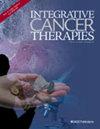在乳腺癌患者接受初级肿瘤治疗后对其实施意念步行干预:随机对照试验中的定性研究结果
IF 2.8
3区 医学
Q2 INTEGRATIVE & COMPLEMENTARY MEDICINE
引用次数: 0
摘要
背景:乳腺癌幸存者经常会受到与诊断和治疗相关的长期副作用的困扰,如与癌症相关的疲劳、抗压能力受限和生活质量下降。研究表明,步行作为一种体育活动和正念练习是有帮助的。本研究的目的是比较乳腺癌患者在步行与正念练习相结合和单独进行适度步行时的个人体验和主观感受效果。方法:至少在 6 个月前完成初级肿瘤治疗的乳腺癌患者被随机分配到为期 8 周的正念步行或适度步行的小组干预项目中。在定性研究部分,进行了半结构化焦点小组访谈(每个研究臂2次访谈),并采用定性内容分析法进行分析。访谈录音被逐字转录并化名。结果:共有 51 名女性(平均年龄 55.8 [SD 10.9]岁)被纳入 RCT,其中 20 名(平均年龄 56.7 [SD 12.0]岁)参加了焦点小组访谈(n = 11 名正念行走组患者;n = 9 名行走组患者)。两组乳腺癌患者在自我效能感、应对能力、身体意识和自我反思等复杂领域都描述了不同的效果。正念步行主要通过正念促进乳腺癌患者的身体意识和内在力量,而适度步行则通过对自己身体的信心和一种易于整合和接受的体育活动方式来提高自我效能。然而,"用心行走 "和 "适度行走 "似乎解决了不同的资源问题。这一重要知识可能有助于肿瘤学家和其他治疗师评估哪种类型的干预措施最能满足个体患者的需求和要求。试验注册:DKRS00011521;2016年12月21日前瞻性注册;https://drks.de/search/de/trial/DRKS00011521。本文章由计算机程序翻译,如有差异,请以英文原文为准。
Implementation of a Mindful Walking Intervention in Breast Cancer Patients After Their Primary Oncologic Treatment: Results of a Qualitative Study Within a Randomized Controlled Trial
Background:Breast cancer survivors often suffer from diagnosis- and therapy-related long-term side effects, such as cancer related fatigue, restricted stress resilience and quality of life. Walking as a physical activity and mindfulness practice have been shown to be helpful in studies. The aim of this study was to compare the individual experiences and subjectively perceived effects of walking in combination with mindfulness practice with moderate walking alone in breast cancer patients. This paper focuses on the qualitative results of a mixed-methods pilot study.Methods:Breast cancer patients who had finished their primary oncologic treatment at least 6 months ago were randomized to an 8-week group intervention program of either mindful walking or moderate walking. Within the qualitative study part, semi-structured focus group interviews (2 interviews per study arm) were conducted and analyzed using a qualitative content analysis approach. Audio recorded interviews were transcribed verbatim and pseudonymized. The subsequent data analysis was performed by using MAXQDA® .Results:A total of 51 women (mean age 55.8 [SD 10.9] years) were included in the RCT, among these 20 (mean age 56.7 [SD 12.0] years) participated in the focus group interviews (n = 11 patients of the mindful walking group; n = 9 patients of the walking group). Breast cancer patients in both groups described different effects in the complex areas of self-efficacy, coping, body awareness and self-reflection. While mindful walking primarily promoted body awareness and inner strength by mindfulness in breast cancer patients, moderate walking promoted self-efficacy by a confidence of their body and an easily integrated and accepted way of physical activity.Conclusions:Study interventions and the study setting triggered processes and reflections on one’s own health and situation. However, mindful walking and moderate walking seem to address different resources. This important knowledge may help oncologists and other therapists to assess what type of interventions can best meet the needs and requirements of individual patients.Trial registration:DKRS00011521; prospectively registered 21.12.2016; https://drks.de/search/de/trial/DRKS00011521
求助全文
通过发布文献求助,成功后即可免费获取论文全文。
去求助
来源期刊

Integrative Cancer Therapies
医学-全科医学与补充医学
CiteScore
4.80
自引率
3.40%
发文量
78
审稿时长
>12 weeks
期刊介绍:
ICT is the first journal to spearhead and focus on a new and growing movement in cancer treatment. The journal emphasizes scientific understanding of alternative medicine and traditional medicine therapies, and their responsible integration with conventional health care. Integrative care includes therapeutic interventions in diet, lifestyle, exercise, stress care, and nutritional supplements, as well as experimental vaccines, chrono-chemotherapy, and other advanced treatments. Contributors are leading oncologists, researchers, nurses, and health-care professionals.
 求助内容:
求助内容: 应助结果提醒方式:
应助结果提醒方式:


